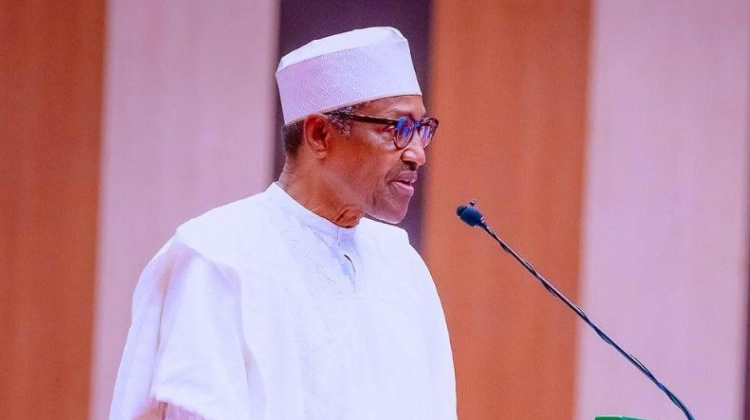
Privileged government officials have continued to initiate jumbo pensions for themselves to escape the challenges associated with the country’s statutory pensions system meant for workers, NIKE POPOOLA reports
some of the challenges lingering in Nigeria’s pension industry are non-payment of gratuity and pension, non-remittance of monthly pension deductions for workers, payment of ridiculously low monthly stipends, omission of retirees’ names from payroll, and long-waiting period to get pensions among others.
Nigerian retirees currently earn pensions from two different pension schemes which are, the Defined Benefits Scheme and the Contributory Pension Scheme.
The DBS, known as the old pension scheme, and marred by payment inconsistencies, has subjected Nigerian retirees to huge hardships for decades.
The persisting challenges under the DBS have remained unsolved under the CPS, despite yearly budget allocations from the Federal Government.
Problems in the DBS and CPS are making elected officials among others, to continue to make moves to avoid the schemes and have special juicy pension arrangements for themselves.
DBS
The DBS is managed by the Pension Transitional Arrangement Directorate. It caters to the pensions of the Civil Service Pension Department, the Police Pension Office and the Customs, Immigration and Prisons Pension Office.
Speaking on challenges in the DBS, the Vice Chairman, The Federal Concerned Pensioners, Akinyele Oludimu, worries that there have been several unfulfilled promises from the Federal Government.
He says, “The payment of the harmonisation has been delayed for too long. Several promises have been made, yet nothing has been done to effect payment.
“Some of our members are yet to be placed on payroll since retirement, over 15 years ago. Many of our members are on the sick bed, while some have died.
“The pensioners are seriously suffering under the present government. Our matter must be looked into as quickly as possible.”
He adds, “Many of our members are bedridden with all sorts of ailments. We have some of them who are without their sight. Many are incapacitated and in the course of finding solutions have ended up losing their lives. The arrears being owed us are for up to 10 years.”
He also says it is important for the government to provide health insurance and other social benefits for retirees.
CPS
The CPS is regulated by the National Pension Commission. While the law was established by the Pension Reform Act in 2004, the compliance level of the government has been faulty.
For instance, in 2014, the PRA raised the monthly pension contributions from 15 per cent to 18 per cent of workers’ emolument.
After several years, the Federal Government continued remittance of just 15 per cent, but only showed readiness to obey the 18 per cent law barely a year ago.
Retirees under the CPS also endure long waits of several years to start receiving pensions. This is because the Federal Government has not shown full commitment to funding of their accrued arrears which needs to be added to augment the workers’ RSAs before their monthly pensions can start.
The President, Nigerian Labour Congress, Joe Ajaero, notes that the CPS has done quite well in some areas.
He expresses concerns that some retirees are getting abysmally low stipends.
Ajaero says, “There are some pensioners on N5,000 monthly pension. Some did not contribute for many years, making them to have low monthly stipends. The regulatory framework is weak and the system is under attack and not sustainable.”
According to PenCom’s report on ‘Enbloc payment of retirement benefits’ as of December 2022, the commission allowed 145,313 retirees to exit the CPS because they had less than N550,000 pensions to get. Their little savings were returned to them and they were not placed on monthly pensions.
Worries
The Chairman/Chief Executive Officer of Achor Actuarial Services Limited, Dr. Pius Apere, says the expected growth of penetration in the pension sector will depend on strong economic growth and job creation.
“However, the eight-year tenure of President Major General Muhammadu Buhari (Rted.) has led to the closure of some businesses which in turn has resulted in the loss of jobs and slowed down pension penetration in the country,” he says.
He notes the recent passage of a bill by the National Assembly for an act to amend the PRA 2014, to exclude the National Assembly service personnel from the CPS and to establish ‘National Assembly Service Pension Board’.
He says, “This is a violation and mockery of the legislative process since the bill was silently passed without passing through a public hearing or allowing stakeholders to make their contributions.
“By passing the law, the National Assembly has opened doors for other government agencies and parastatals to begin to agitate for their own exemption without having no moral justification to deny agitators.”
Speaking on the gains of the CPS, he says there has been significant growth in terms of pension enrolment increasing to 9.9 million as of the end of February 2023 from 6.8 million in 2015.
He says assets under management rose to N15.4tn as of the end of February 2023 from N5.3tn in 2015.
Apere also lauds the introduction of the Micro Pension Plan in Nigeria in 2019 by Buhari, aimed at providing pension coverage to those in the informal sector of the economy.
Challenges
The Director, Centre for Pension Rights Advocacy, Ivor Takor, says, the DBS, supervised by PTAD draws pension from the treasury at the federal level and the payment of pension has been stabilised to some extent under the outgoing administration.
Although, he adds, there are still some challenges on arrears of pension, payment of death benefits and arrears arising from pension reviews.
He says, “The greatest challenge has been with the release of funds for the payment of accrued pension rights of retirees. This is the cause of workers at the federal level retiring and staying for years without the payment of their pensions as well as payment of death benefits.”
According to him, a major challenge facing pensioners, which Buhari’s administration inherited and is exiting with is the issue of Minimum Guarantee Pension which should ensure enhanced stipends for retirees.
He says, “Section 84(1) makes provision for Minimum Guarantee Pension, which should be specified by PenCom from time to time. People have started retiring since 2007 based on the Act and PenCom is yet to specify the MGP.”
The other area where the outgoing Federal Government has failed, he says is the review of pensions under the CPS.
Speaking on the government’s default, he says, “Section 173(3) of the 1999 constitution (as amended), provides that pensions of federal public servants shall be reviewed every five years or together with any salaries review, whichever is earlier. Section 210(3) of the constitution, has the same provision for States Public Servants.”
PTAD
Despite lingering challenges in the DBS, the Executive Secretary, PTAD, Dr. Chioma Ejikeme, says it has made giant strides in the system.
While addressing pensioners in April at the North-East stakeholders engagement forum, at Yola, Adamawa State, she said, “Through the unwavering support of President Major General Muhammadu Buhari (Rted.), PTAD has completely liquidated the inherited unfunded liabilities of all the defunct/privatised privatised agencies handed over to PTAD in 2017, with the exception of NITEL/MTEL with a balance of 36 months, which we are fully committed to liquidating.”
While accepting that there has been regularities for monthly pension payments, retirees still say other huge challenges have not been addressed.
The Chairman, NUP (Federal Branch Lagos State), Arashi Lawal, says, “The Federal Government is paying monthly pension regular, but there are many arrears that are still pending.
“Some retirees have not been put on payroll since 2007 when they retired despite doing verification with PTAD.”
PenCom
At the start of the CPS, PenCom said the pension industry had a liability of N2tn.
It says it has been getting some funds to clear the huge arrears. However, industry observers say the funding is not enough to clear the prolonged backlog.
In January 2023, PenCom disclosed that the Federal Government released N13.89bn for payment of accrued rights for CPS retirees who retired in 2022.
It states, “The accrued pension rights represent an employee’s benefits for the past years of service up to June 2004, when the CPS came into effect.”
The Director-General, National Pension Commission, Aisha Dahir-Umar, discloses in her report on the pension industry for 2021, that the Federal Government paid a total of N980.18bn to retirees of treasury funded Ministries, Departments and Agencies from the inception of the Contributory Pension Scheme in 2004 to December 2021.
According to her, the most significant development in the pension industry in 2021 is the successful reduction of outstanding pension liabilities of the Federal Government under the CPS.
She says PenCom obtained presidential approval for N159.46bn to pay some aspects of outstanding pension liabilities of the Federal Government under the CPS.
Consequently, she says, N40.55bn, being the outstanding accrued rights of 6,282 retirees and 2,329 deceased employees, was paid during the year.
She adds that N66.83bn was remitted into the Retirement Savings Accounts of 85,743 retirees and 693,229 active employees, being the 2.5 per cent shortfall in the rate of employer pension contributions as of December 2021.
Jumbo pensions
As Buhari’s eight years government ends today (Monday), retirees have not been able to comprehend why their challenges have remained a ‘carry over’.
Experts have faulted elected officials for failing to implement comfortable pensions for workers who elected them, but rather, adopted selfish bloated pensions.
In 2019, the Socio-Economic Rights and Accountability Project filed a contempt suit against the Federal Government and Attorney-General of the Federation and Minister of Justice, Mr Abubakar Malami (SAN), “For failing to recover over N40bn double pay and life pensions from former governors who are serving as lawmakers and ministers.”
Justice Oguntoyinbo of the Federal High Court, Lagos directed Malami to “Challenge the legality of states’ life pension laws permitting former governors and other ex-public officials to collect such pensions.”
Unfortunately, the Buhari government failed to implement the judgment.
According to PenCom’s report on ‘Status of implementation on pension arrangements in states and the FCT as at September 2022’ only seven states were paying workers’ pensions under the CPS, amid a huge backlog
Low ranking
According to ‘Allianz Global Pension Report 2023’, Nigeria’s pension system is at the bottom of the global rankings and needs reforms.
It states, “The Nigerian pension system is at the bottom of the global rankings. It is only small consolation that most other African countries have very similar scores. The reason for concern is still the low coverage of the pension system.”





